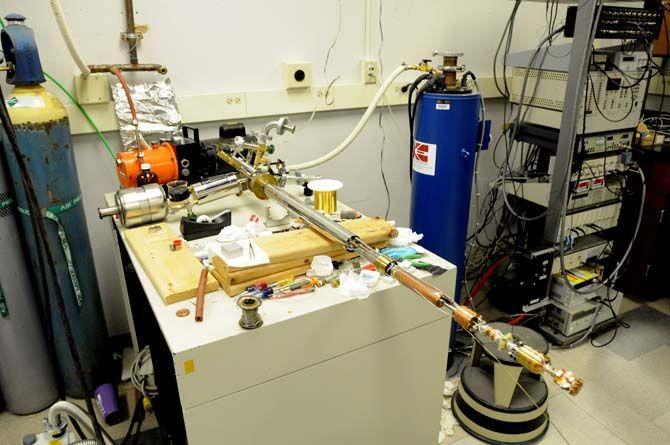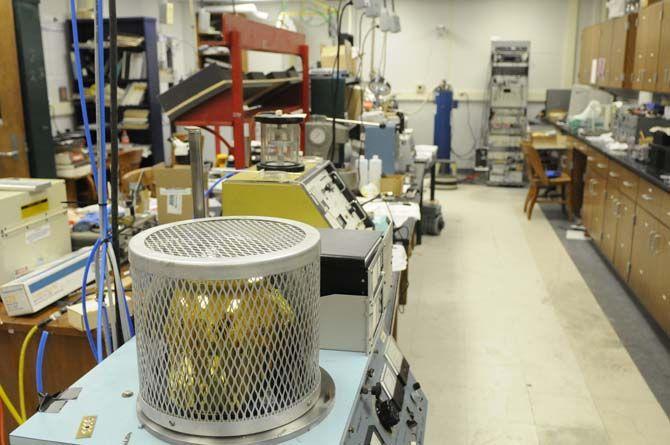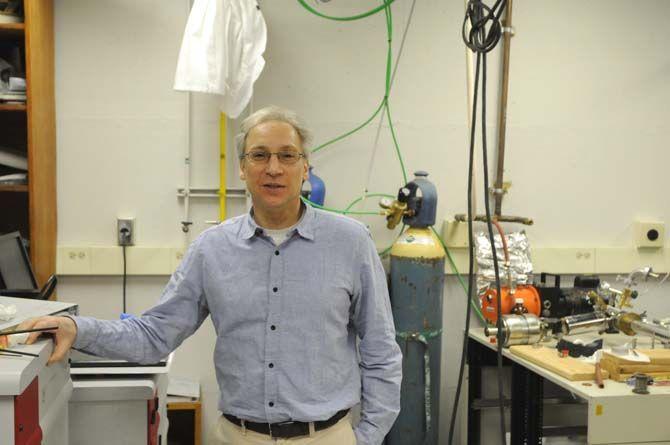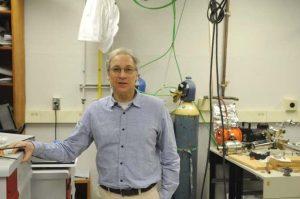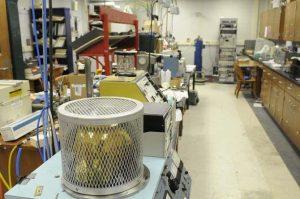University faculty members will lead a multimillion dollar statewide study giving students the opportunity to experience the field of neutron scattering.
John DiTusa, Louisiana Consortium for Neutron Scattering principal investigator and physics professor, will lead a group of faculty researchers from the University, along with professors from Tulane University, the University of New Orleans and Louisiana Tech, funded by a $4.9 million grant from the U.S. Department of Energy’s Experimental Program to Stimulate Competitive Research.
DiTusa said the three-year research initiative will better the understanding of advanced materials. It will also help in finding ways to create new technologies, or to make existing technologies better by manipulating the materials involved in creating different instruments.
“There are two types of materials involved, hard materials and soft materials,” DiTusa said. “In hard materials we’re mostly interested in magnetism, superconductivity and other interesting electrical properties. In the soft materials, we’re looking at things that will help us build better photovoltaic cells.”
Studying these materials, DiTusa said, could lead to technological improvements in the long term like more efficient power lines, nanotubes to constantly deliver medicine in the body, computers with more memory space in their hard drives and cheaper materials for building solar panels.
Neutron scattering is a technique used to manipulate the structure and dynamics of materials over a range of time, length and conditions.
Undergraduate students interested in neutron scattering will have the opportunity to work on the research initiative. DiTusa usually works with two to three undergraduate students at a time on material synthesis and characterization.
“I want undergraduates to understand that [the University is] connected to a broader world of scientific research,” DiTusa said. “What we’re doing is not just making connections to other universities in the state, but to national laboratories. The faculty is going to these national labs and making connections to the people and the science there. We’re competing on a worldwide level in order to get this [opportunity].”
Fourteen faculty members will participate in the study — 10 from the University and the other four from other Louisiana institutions.
The funds will be used mostly for personnel hiring, including the faculty, eight graduate students, six postdoctoral researchers and one visiting faculty member, DiTusa said.
The money will also be used for travelling expenses, as most of the research will be done at the Oak Ridge National Laboratory in Tennessee.
DiTusa believes University students benefit from having faculty who are heavily involved with research, because opportunities for experience help put what they learn in the classroom into perspective.
“One of the reasons why [students] come to LSU [is] to be at the center of academic excellence,” DiTusa said. “It’s also employment. [Students] can use this as a job. If you understand that what you’re learning in class is useful and important, you’re going to learn it much better.”
Statewide study lets students explore neutron scattering
February 18, 2015
Lab inside Nicholson Hall where Dr. Jhon DiTusa works on Wednesday, Feb 18, 2015. He is the principal investigator for the $4.9 million reasearch grant the LaCNS just got from the Department of Defense.


